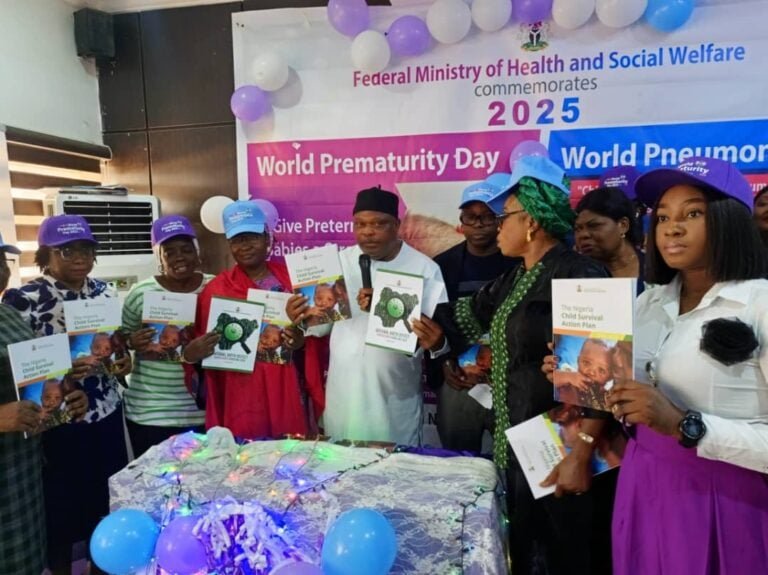
ABUJA, Nigeria – Nigeria loses 280,000 newborns annually within their first 28 days of life, largely due to prematurity, while 162,000 children die each year from pneumonia, the Coordinating Minister of Health and Social Welfare, Prof. Muhammad Pate, has revealed.
He made this known in Abuja on Wednesday during a joint briefing marking World Pneumonia and Prematurity Days 2025 and the launch of the Nigerian Child Survival Action Plan and National Birth Defect Surveillance Guideline.
World Pneumonia Day (November 12) and World Prematurity Day (November 17) were observed under the themes “Child Survival: Focusing on Pneumonia’s Impact as the Leading Infectious Cause of Child Death” and “Give Preterm Babies a Strong Start for a Brighter Future.”
Represented by the Director of Health Promotion, John Urakpa, Pate cited data from the Nigeria Demographic and Health Survey (NDHS) showing under-five mortality declining from 201 per 1,000 live births in 2000 to 110 in 2023, a 45 per cent reduction.
Despite this progress, Nigeria remains off track to achieve the UN Sustainable Development Goal (SDG) target of reducing under-five deaths to below 25 per 1,000 by 2030.
“Nigeria and 14 other countries account for nearly three-quarters of global childhood pneumonia deaths,” Pate said. “We must not ignore pneumonia — the ‘forgotten killer’ of under-fives.”
He credited collaborations with Every Breath Counts Coalition and the Paediatric Association of Nigeria for improving pneumonia treatment and cutting under-five mortality from 132 to 110 deaths per 1,000 live births between 2018 and 2024.
The minister stressed the need to close gaps in newborn survival, noting that neonatal mortality had barely declined in 35 years — from 42 to 41 per 1,000 live births.
“The deaths of 280,000 newborns and 162,000 pneumonia-related deaths each year place a moral burden on our health system,” he said.
The Permanent Secretary, Daju Kachollom, said the ministry is expanding newborn and child survival interventions such as oxygen therapy, Kangaroo Mother Care, and early breastfeeding, alongside stronger data systems for equitable health investments.
UNICEF’s representative, Dr. Martin Dohlsten emphasised that pneumonia and prematurity remain Nigeria’s deadliest child health challenges.
“Together, these challenges demand coordinated action and sustained advocacy. Every Nigerian child deserves not just to survive—but to thrive,” Dohlsten said.




